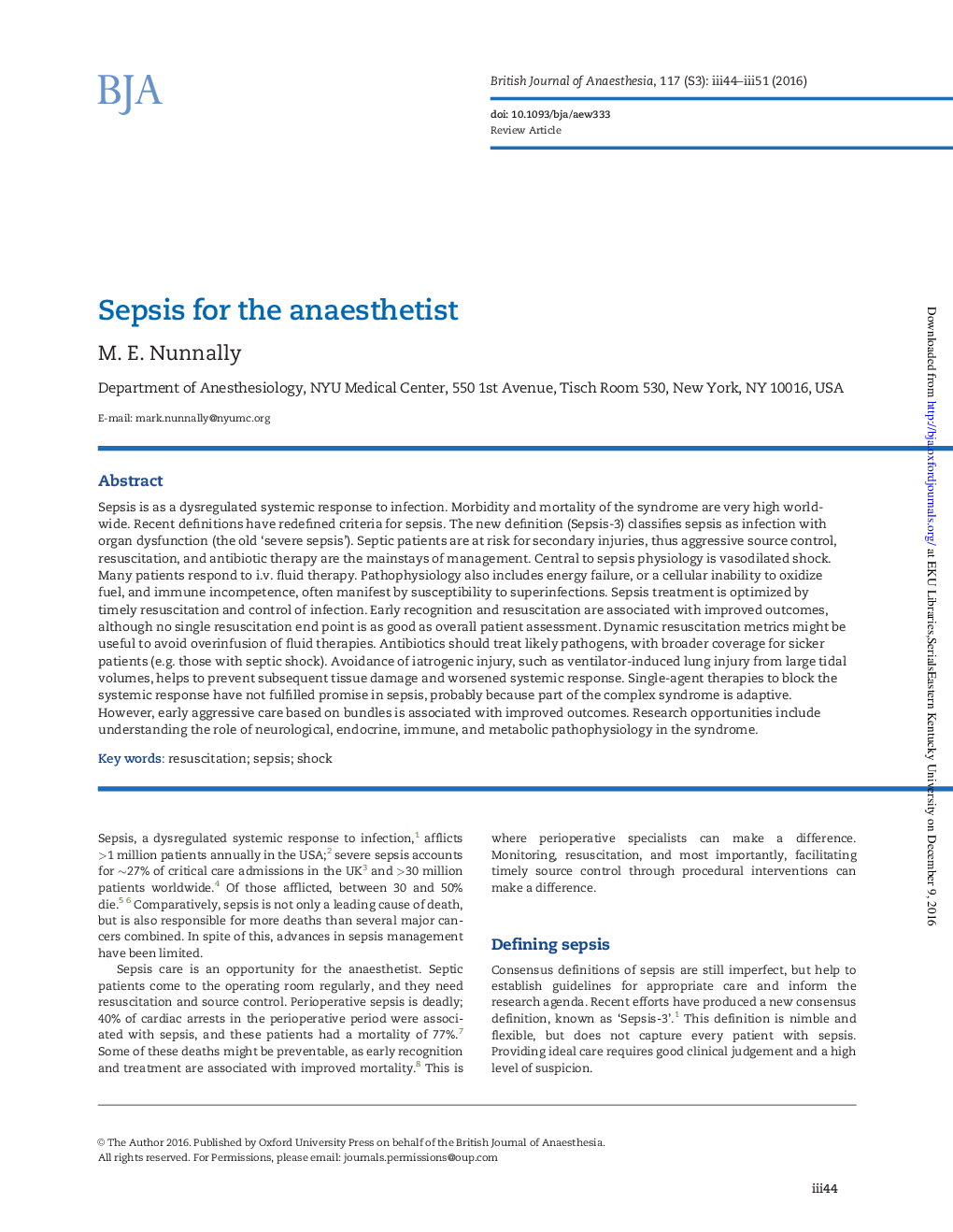| کد مقاله | کد نشریه | سال انتشار | مقاله انگلیسی | نسخه تمام متن |
|---|---|---|---|---|
| 8930804 | 1644529 | 2016 | 8 صفحه PDF | دانلود رایگان |
عنوان انگلیسی مقاله ISI
Sepsis for the anaesthetist
ترجمه فارسی عنوان
سپسیس برای متخصص بیهوشی
دانلود مقاله + سفارش ترجمه
دانلود مقاله ISI انگلیسی
رایگان برای ایرانیان
کلمات کلیدی
احیا، سپسیس، شوکه شدن،
موضوعات مرتبط
علوم پزشکی و سلامت
پزشکی و دندانپزشکی
بیهوشی و پزشکی درد
چکیده انگلیسی
Sepsis is as a dysregulated systemic response to infection. Morbidity and mortality of the syndrome are very high worldwide. Recent definitions have redefined criteria for sepsis. The new definition (Sepsis-3) classifies sepsis as infection with organ dysfunction (the old 'severe sepsis'). Septic patients are at risk for secondary injuries, thus aggressive source control, resuscitation, and antibiotic therapy are the mainstays of management. Central to sepsis physiology is vasodilated shock. Many patients respond to i.v. fluid therapy. Pathophysiology also includes energy failure, or a cellular inability to oxidize fuel, and immune incompetence, often manifest by susceptibility to superinfections. Sepsis treatment is optimized by timely resuscitation and control of infection. Early recognition and resuscitation are associated with improved outcomes, although no single resuscitation end point is as good as overall patient assessment. Dynamic resuscitation metrics might be useful to avoid overinfusion of fluid therapies. Antibiotics should treat likely pathogens, with broader coverage for sicker patients (e.g. those with septic shock). Avoidance of iatrogenic injury, such as ventilator-induced lung injury from large tidal volumes, helps to prevent subsequent tissue damage and worsened systemic response. Single-agent therapies to block the systemic response have not fulfilled promise in sepsis, probably because part of the complex syndrome is adaptive. However, early aggressive care based on bundles is associated with improved outcomes. Research opportunities include understanding the role of neurological, endocrine, immune, and metabolic pathophysiology in the syndrome.
ناشر
Database: Elsevier - ScienceDirect (ساینس دایرکت)
Journal: British Journal of Anaesthesia - Volume 117, Supplement 3, December 2016, Pages iii44-iii51
Journal: British Journal of Anaesthesia - Volume 117, Supplement 3, December 2016, Pages iii44-iii51
نویسندگان
M.E. Nunnally,
